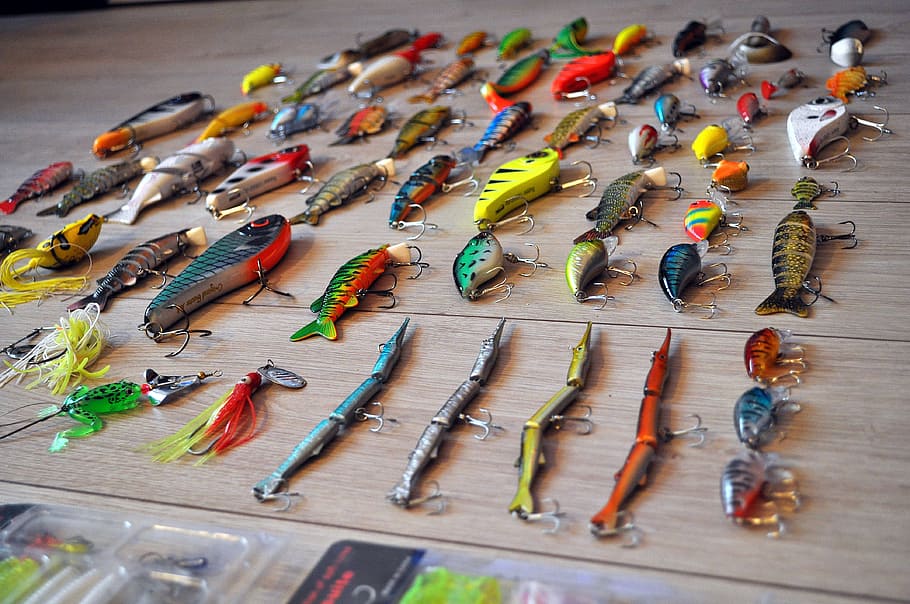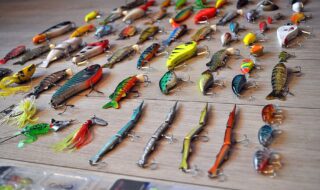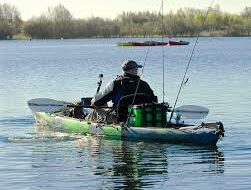All seasoned anglers have stories to tell, but what they might not be so willing to discuss is the secrets that they believe have made them successful where others seem to fail all the time. The following secret tips and tricks may just help you gain a little edge and bridge that gap between you, as a new up and coming angler, and those with years of experience.
Specialise your tackle boxes
A novice mistake is to pack a lot of tackle that has nothing to do with the fish you want to catch. Your tackle box should look like it’s specialized for catching a specific type of fish.
See red
Predatory fish prey on the injured. Nothing can make them as enticed as something red in the water. Fish respond to visuals, which is why many anglers swear by this trick. This can work when fishing for species like pike and zander and perch either by adding red tags to deadbaits, or using lures with red in them, or adding red dye to deadbaits. However red also appears to work for other none predatory fish in a cloud in the water so liquid food colouring is worth considering.
Nail those worms
Fish are visual creatures, and they respond well to what they perceive as natural. Rubber worms used to attract species like bass and perch floating in the water might not look like that. Use nails to add weight to rubber worms so that they appear to be moving naturally through the layers of the water. The nails also add casting weight and allow you to work different depths depending on the speed of retrieve.
Chop and change
Fish are a little smarter than you may think. You will often notice that they simply stop feeding sometimes, even if you are using a bait you know they find enticing. If this happens, shake things up a bit. Use a different bait, or a smaller one. Modify your retrieval speed if lure fishing. If fish suddently stop biting keep trying things until you get a response.
Customize your baits
If everyone uses the same lures, how can you make yours stand out? A trick that seasoned lure anglers use is this. They use sharpies (pens) to customize their baits so that they look more like the type of fish that the ones you want to catch would find appealing.
Bring a file to sharpen your hooks
While many anglers know the importance of carrying sharp hooks with them, you should do more than that. The most seasoned fishing enthusiasts always bring a file with them so that they can sharpen their hooks after each time they catch a big fish. Predatory fish have bony parts of the mouth that all but the sharpest hooks won’t penetrate enough to keep a hook hold.
Search shallow waters in the spring
Predatory fish can often be found in the shallows in spring where they are chasing the new fry. They can get into something of a feeding frenzy in these situations and drop their guard, although you should still match your lures to what the fish are chasing.
Gear up for stormy weather
Pay attention to moving clouds and try and grab some fishing when a storm is approaching. The change in air pressure unsettles fish, and they will often start to bite in these situations.
Tide will help you when you go saltwater fishing
Saltwater fishing can be a gratifying experience, and a full review of what equipment you need is necessary. Pay attention to the tide, as moving waters are a sign for fish that food is moving around, too. Many tides equal a lot of fish searching for food whereas things can shut off when the tide is on the turn.
Conceal your scent
Fish have a strong sense of smell. While they won’t necessarily smell you, you can transfer your scent unknowingly to your lures or bait, and that can be a strong reason why fish seem to shy away from your bait. Carry some scentless soap with you and wash your hands when handling lures, especially after using sunscreen. Or put on gloves before putting sunscreen on. Better still don’t use soap at all. Many top anglers refuse to fill their tank with fuel as well on a day when they are fishing.
Pic: Creative Commons






